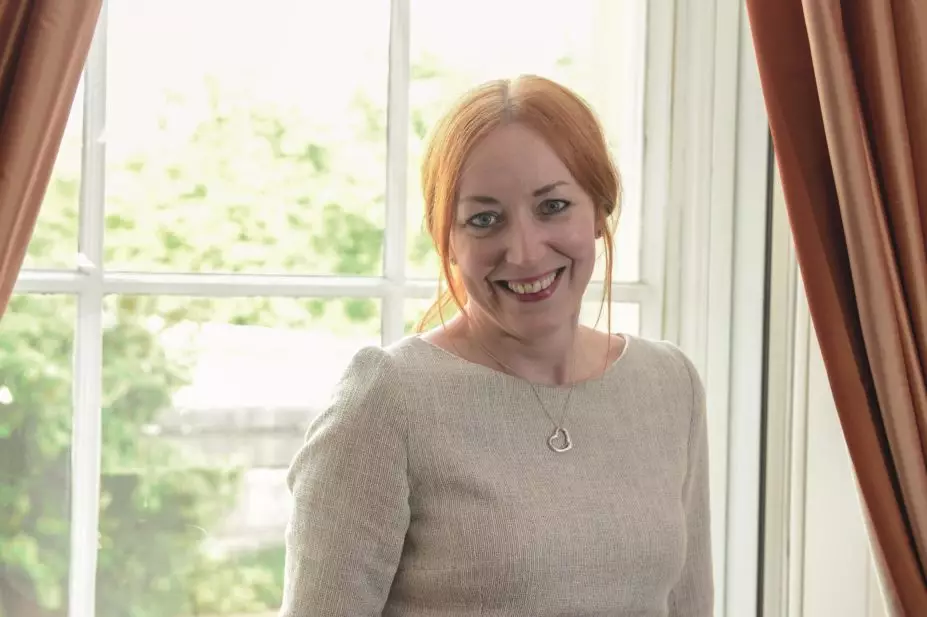
Royal Pharmaceutical Society
As director of professional development and support, Catherine Duggan is responsible for the delivery of professional advice and support, as well as professional development, science and research strategies at the Royal Pharmaceutical Society (RPS). At the 2015 RPS annual conference, Duggan launched the Society’s vision for transforming the pharmacy workforce, which sets out the objectives of the RPS and why pharmacists should be valued within the healthcare system.
How do you feel the pharmacy workforce landscape has changed over the past five years?
What’s really changed is that now people’s careers change and flow and they move between sectors much more readily. There’s a real need for the workforce to become very flexible: to deliver the best care where patients need it and to take on more clinical roles as those patients get older, are prescribed more medicines and require more care.
Who was involved in constructing the RPS workforce vision?
We have engaged across our education advisory panel, science panels, specialists who are working across the national pharmacy boards and in educational divisions across the nations. We were as inclusive as we could be in setting out principles we think the workforce should aspire to. We are also keen to work with the Association of Pharmacy Technicians UK (APTUK) to ensure the entire workforce is able to take on the new roles and responsibilities.
How was the workforce vision developed?
First we established why we would need to have a vision in the first place. We understand the challenges on healthcare across the three nations as more patients are living to old age and taking more medicines. Pharmacists can’t continue to do the same job, we have to evolve and grow. It was time to draw a line in the sand. Up until now we have never said what we think the pharmacy workforce needed to be supported with. The vision was an opportunity to do this. Where does the RPS Faculty fit, where does Foundation fit, how does our charter fit around this, how do we share best practice? We put those four factors out to our colleagues and put the pieces of the jigsaw together.
In the workforce vision it talks about ‘developing models of education and training delivery’ to ensure that all student pharmacists have the same high quality educational experiences – what are these models?
At the moment most universities have a four-year MPharm degree and then a preregistration training year. We’ve had a lot of evidence to show that further integration would be beneficial for students before they register. The General Pharmaceutical Council accredits universities to deliver and maintain standards of education, but is also interested in improvement. The RPS therefore needs to think about what is best and how providers can demonstrate that they are implementing and integrating this as best as they can. We want excellent education to be accessible to all pharmacy students.
The vision also says that all student pharmacists should have ‘ready access to leaders in pharmaceutical science’. How will you make sure all students have the same opportunities to have this access?
The key is that they don’t have to have access to the same leaders. Leadership is everybody’s business. All people involved with student development should have access to the best leadership tools they possibly can so they can develop on their own or with a mentor. When students have access to other students and identify their own leadership qualities, they do better, if they have access to educators who themselves are recognised as role models, they do better. This shouldn’t be an accident, we should be able to help all educators to be able to be the best leaders they can be, and then students can have access to as many as possible.
What are the RPS’s annual priorities for 2016 regarding the pharmacy workforce?
To be recognised by members as the first port of call for professional development; for supporting those in existing roles; hospital, community, regulation, academia and industry, through access to experts, support tools, guidance and standards and knowledge guides. For people moving into new roles; GP practices, urgent and emergency care or care homes, we are providing ultimate guides so people can move from sector to sector.
What steps is the RPS taking to ensure pharmacists are valued across all sectors?
Across the three nations there is a real recognition from governments that pharmacists have a bigger role to play. For those of us who are established in their career, this might mean a clinical refresh or access to a specialist. For those coming through their careers, now they have access to the RPS Foundation and Faculty programmes. The Faculty will help to record evidence of impact as they go. The more evidence we have disseminate, the more governments will realise that investing in pharmacy is worth it and the more pharmacists will be able to develop in their roles. We are here to help the workforce develop. We are not the only organisation to offer support but we have been building these toolkits for five years now. We know the frameworks, standards, support guides and tools work.
What do you feel are the main issues currently facing the profession?
I think for everyone across all sectors, there is a sense that we need to do more with less. Pharmacists are perfectionists by nature, who are driven to get things right. While we manage risk all the time, we are very aware of getting it right for patients who are older, more frail and taking more medicines. Everybody feels stressed because they’re trying to keep the quality of services high. The profession needs access to support, ways to develop, and standards so they know they’re doing well. There’s a lot to do in transformation of the workforce, we can support that in many ways.

